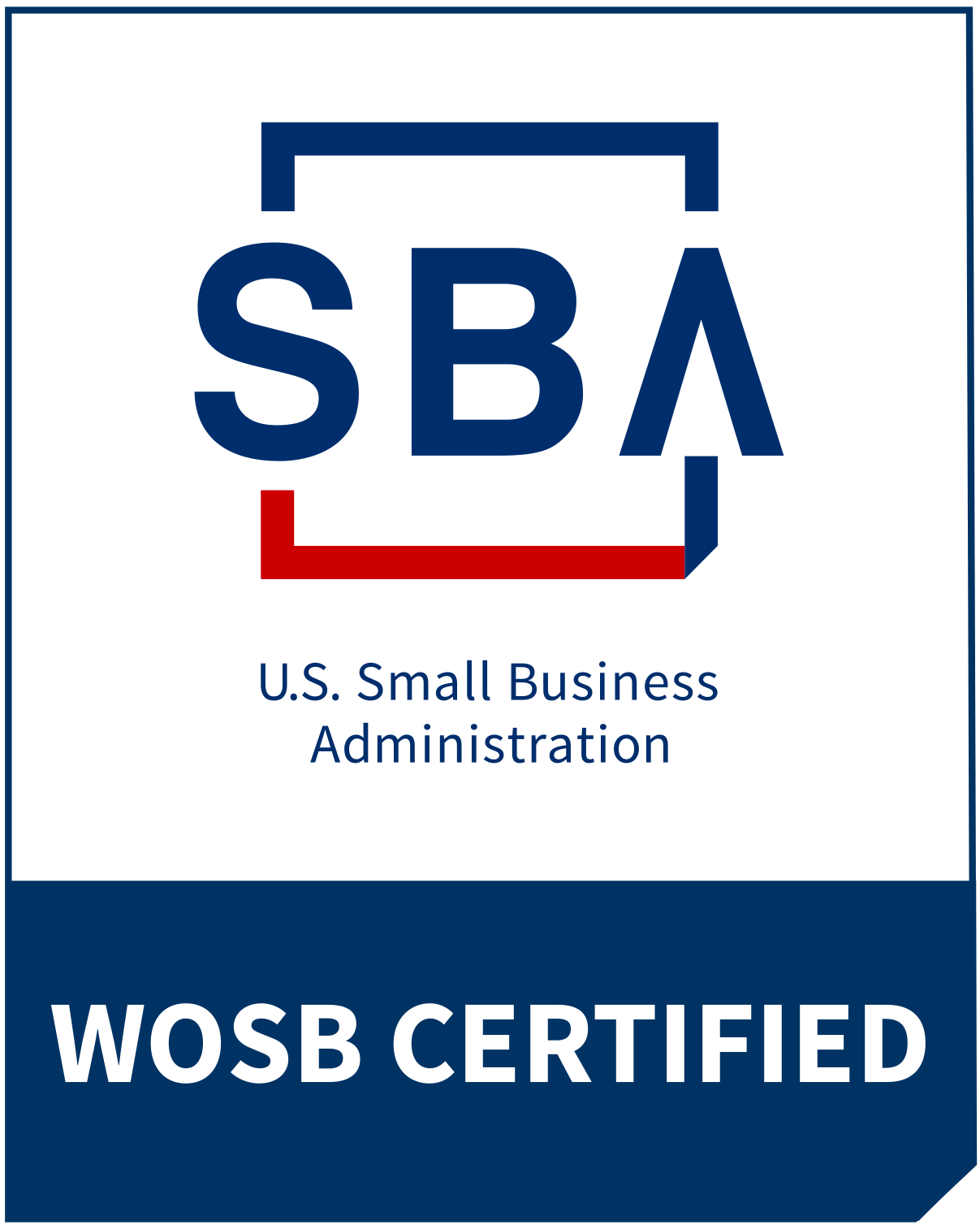Scaling Isn’t Just About More Sales
Scaling Isn’t Just About More Sales
When you hear the word “scaling,” what comes to mind? Most business owners envision booming sales and a tidal wave of customers lining up for their offerings. And it’s no wonder: everywhere you turn—articles, social posts, investor pitches—there’s chatter about “just sell more,” as if revenue growth alone were the magic wand that cures all. But is it really that simple?
The reality is that scaling isn’t just about packing more sales into your pipeline. While you do need healthy revenue streams, the truth is that scaling is about creating a sustainable infrastructure—one that supports more clients without draining your team. It’s about building systems and processes that let you handle bigger volumes and complex operations while still maintaining a healthy profit margin. Without these foundational components in place, you run the very real risk of “growing broke”—finding yourself stuck in a situation where revenue rises, but profits shrink because the back end can’t keep up, leaving you working twice as hard for less reward.
In this article, we’ll debunk the myth that bigger sales numbers automatically mean bigger profits. We’ll explore why well-designed systems matter more than you think, show you how to differentiate between mere “growing” and genuine “scaling,” and help you understand why a systems-focused approach sets the stage for long-term, profitable growth. By the end, you’ll have a clearer path to building a business that doesn’t just look impressive on the outside but truly thrives from within.
Facing the Myth: More Sales Automatically Means More Profit
It’s easy to get caught up in the idea that more customers always lead to more cash in the bank. But maybe you’ve seen the cracks in that logic firsthand. Have you ever had a surge in demand that forced you to scramble for resources, hire more people, or invest in expensive software—only to find that your profit margins shrank instead of grew? If that’s the case, you’ve felt what it’s like to be “growing broke.”
What is “growing broke”? It’s when rising revenues are swallowed up by ballooning expenses or operational chaos. You’re selling more but earning less. Instead of feeling the satisfaction that should come with more sales, you feel stressed, overworked, and uncertain about where the money is going. Your back end can’t keep pace with the front-end excitement, and it starts to show—in your bottom line, in team morale, and often in customer satisfaction.
Let’s take a hypothetical scenario: Imagine Sarah, who owns a small software-as-a-service (SaaS) company. She runs a great marketing campaign and doubles her client list in a few months. On paper, this looks fantastic. But as the new customers roll in, Sarah needs more server space, more support staff, and more everything. Her expenses rise faster than her revenue. Suddenly, she’s working longer hours, her team is overloaded, customers are noticing delays in support, and profits aren’t keeping up. Sarah is growing, but she’s far from scaling.
Understanding the Difference Between Growing and Scaling
Growing usually means doing more of what you’re already doing—more clients, more employees, more technology—everything doubles when you double your sales. It’s linear and often leads to complexity increasing at the same pace as revenue.
Scaling, on the other hand, is about increasing revenue faster than costs. Imagine building a structure so strong and streamlined that adding twice as many customers requires only a slight increase in resources. When you scale, you rely on efficient systems, automation, and smart processes. Instead of plugging every gap with another hire or another patchwork solution, you have a framework that makes growth smooth, controlled, and profitable.
Questions to Consider:
Are you adding layers of complexity each time you get more clients?
Do you feel buried under endless to-do lists just to keep up with existing demands?
Have your profit margins narrowed instead of widened after an uptick in sales?
If these questions hit close to home, it might be time to rethink your approach.
Why Systems Matter More Than You Think
Think about constructing a skyscraper. Adding floors (more sales) without a strong foundation (your systems) is a recipe for collapse. Systems—repeatable processes, documented workflows, automation tools, and quality controls—let you handle higher volumes without pushing your entire organization to its limits.
How systems help:
1. Consistency in Delivery
With clearly defined systems, you ensure that no matter how many customers walk through your digital door, they get a reliably great experience. Everyone on your team knows their role and can deliver consistent results, boosting your brand’s reputation and customers’ trust.
- Prevent Employee Burnout
2. Cost Management
Without systems, costs can spiral. It’s natural to assume more customers mean more staff or more servers. But what if a well-structured workflow lets one team member handle twice as many clients or a single piece of automation replaces hours of manual work? By reducing incremental labor costs, you free up resources for real growth initiatives.
- Increase Client Satisfaction
3. Risk Mitigation
According to a U.S. Bank study, about 82% of small businesses fail due to cash flow problems (Source: SCORE). Systems help you avoid operational pitfalls such as inconsistent invoicing, poor follow-ups, and a lack of financial visibility. With the right structure, you can maintain healthy cash flow even when the pace of business picks up.
- Supercharge Profit Margins
4. Adaptability
Markets shift, clients evolve, and technology changes. Solid systems let you pivot quickly. Rather than scrambling to reinvent processes each time you face a new challenge, you can tweak what already works. This flexibility keeps you a step ahead of competitors who rely solely on brute-force sales tactics.
Sales Alone Won’t Save You
If increasing sales were all it took to scale, then any business enjoying a surge in new customers would also enjoy surging profits. But we both know that’s not always true.
More sales without systems can multiply inefficiencies.
More sales without robust processes can create customer service bottlenecks, slow order fulfillment, and unhappy clients.More sales without proper controls can mean cash flow nightmares and mounting stress.
You’ve likely worked hard to get new leads. Isn’t it time to make sure that each new sale strengthens your business rather than straining it?
As a consultant who helps companies stop “growing broke,” I’ve seen the difference well-implemented systems can make. Businesses that invest in stable operational structures transform chaotic growth into sustainable scaling. They don’t just post higher sales figures—they see actual profitability improve, team members become more engaged, and customers remain delighted.
Imagine the relief of knowing your operations can handle an influx of new customers without pushing you and your team to the brink. Picture having the confidence to say “yes” to exciting opportunities because you know your systems can support them. That sense of peace and assurance—that’s what true scaling offers.
A Systems-First Approach to Scaling
How do you begin? Start small, start now.
1. Map Out Your Core Processes
Document how you onboard clients, fulfill orders, and provide support. Even a simple checklist can bring clarity and reveal where inefficiencies lurk.
- Prevent Employee Burnout
2. Automate Where You Can
Take advantage of technology—from CRM platforms to project management software—to handle repetitive tasks. But choose tools thoughtfully. Each one should fit into your workflow like a well-crafted puzzle piece.
- Increase Client Satisfaction
3. Measure What Matters
Track key metrics like cost per customer acquisition, average response time, and cash flow. Knowing your numbers helps you spot issues early and course-correct before problems balloon.
- Supercharge Profit Margins
4. Optimize Continuously
Systems aren’t set-and-forget. Keep improving. Update documentation as things change, train your team regularly and don’t hesitate to refine processes that no longer serve you
5. Align Your Team
Foster a culture that sees systems not as red tape but as tools that empower everyone to work smarter. When your team appreciates the value of well-structured processes, they’ll help maintain and improve them, fueling sustainable growth.
Benefits of Getting It Right
Enhanced Profitability: With efficient systems, each new sale can add more to your bottom line, not just your workload.
Better Work-Life Harmony: When you’re not constantly firefighting, you can focus on strategy and innovation or even take a long-overdue break. In other words, you reclaim your time.
Improved Customer Satisfaction: Consistent systems mean consistent customer experiences, driving loyalty, positive reviews, and long-term relationships.
Sustainable Scale: Instead of lurching through growth spurts and crashing when complexity overwhelms you, systems allow for steady, controllable expansion.
Bringing It All Together
Scaling isn’t about cramming more sales into your pipeline. It’s about building a foundation that turns rising revenue into real profit. Without proper systems, you risk “growing broke,” working harder yet somehow earning less. With the right approach—documented processes, smart tools, and a systems-first mindset—you create a platform that supports not just bigger numbers but better outcomes.
Sales growth might feel like a quick fix. But as you’ve seen, real scaling demands more than just revenue. It requires a strong operational backbone that preserves profitability, safeguards your team’s well-being, and ensures customers stay delighted. Invest in these systems now, and you’ll transform the myth of “more sales equals successful scaling” into the reality of long-term, sustainable success.
Ready to Rethink Your Approach?
Which business processes can you streamline and document today?
Where could a bit of automation free up your team’s time and energy?How would it feel to know your business can handle new clients effortlessly?
Reflecting on these questions can help you develop a systems-first strategy and ensure that you never again end up “growing broke.”
Ready to build a stronger foundation for your growth? Sign up for a free Fast Track Strategy Session. We’ll pinpoint your most pressing operational gaps, find some hidden cash, and map out your next steps toward profitable, sustainable scaling—so every new sale drives your business forward, not backward.
Is Your Business Growing Broke?
Is your business thriving on paper but crumbling at the same time? You may be “growing broke,” where revenue increases but profits decrease and everything seems to be in chaos. The culprit? Missing systems and outdated processes that can’t keep up.
The answer is simple: take a systems-first approach. This approach supercharges scalability, streamlines operations, and allows you to regain control of your company and your time without the stress.
Stop firefighting and start building a business that works for you. Click below to stop growing broke!
Related Posts





